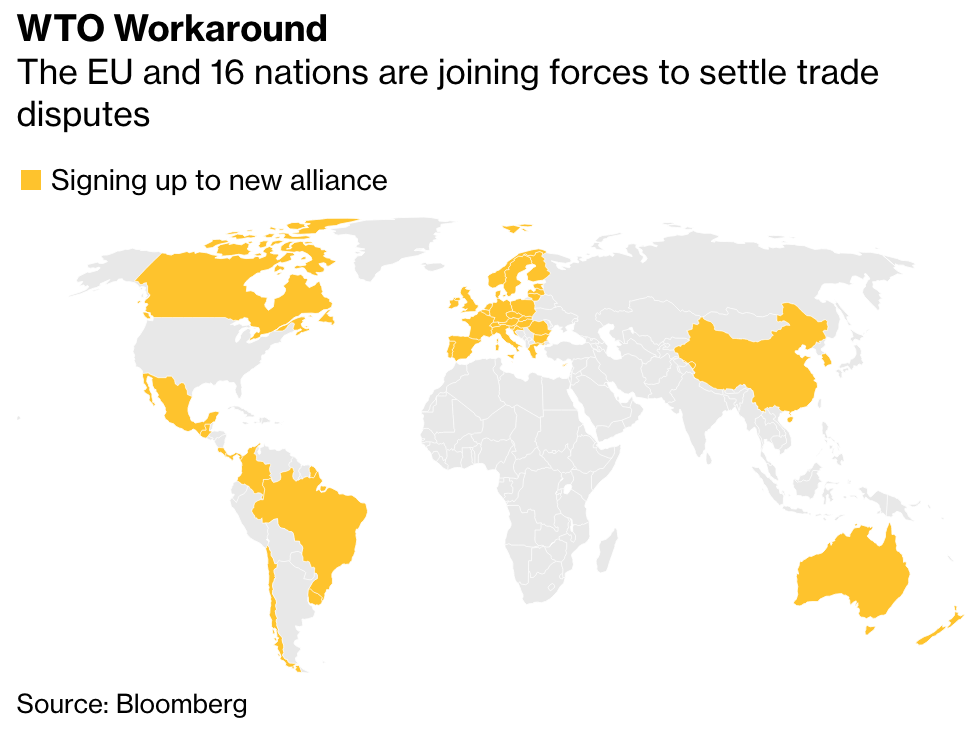In a very interesting essay, Fatih Oktay asks why China would agree to a trade deal that seems to offer it very little of value:
However, these considerations only provide breathing space for China. After the election, if Trump wins, he is likely to bring back into spotlight the more important issue of state involvement in the economy and technological development in China, and intensify the technology war. If Trump does not win, it is likely to be worse for China. Another president that can leverage the United States’ soft strengths and cooperate with allies could make life much harder for China. So, either way the conflict is likely to intensify after the U.S. elections. It is unlikely that Chinese leadership would go into this deal just for a short period of relief.
The deal, though, may have long term effects on the relationship of the two countries as well. U.S. exports of goods and services to Canada and Mexico, its top two markets, totaled about $365 and $300 billion dollars respectively in 2018. The trade expansion required by the deal will place China’s imports of U.S. goods at a level comparable to that of Mexico by the end of next year, and if the trend continues, with the expected rates of its economic growth, China may soon be the top market for U.S. exports. That would be strong coupling in a time of decoupling discussions and would make the United States a stakeholder in the Chinese economy. The other side of the coin: China’s leverage on the United States would increase immensely.
It is rather strange for the US to demand that China become much more closely integrated with the US economy at a time when the foreign policy establishment talks of “decoupling”. And it’s not just trade, we are also demanding that China become more open for foreign investment. This is an example of what can go wrong when an administration goes into negotiations with no clear idea of what it is trying to achieve.
The Trump administration is also hostile to multilateral organizations and is trying to cripple the WTO. Fortunately, a group of other nations representing a major portion of the global economy are trying to protect the global trading system:

Now you know the answer to the question: “What do the US, Russia, Argentina, Bolivia, Paraguay, Peru, Venezuela, Africa and South Asia have in common?
PS. I wonder how Trump supporters feel about their President saying how much he “loves” Xi, a dictator who presides over massive human rights abuses in Xinjiang. Personally, I find this sort of “coupling” to be disgusting. (Yes, I know he was joking, but wouldn’t you prefer he call out the Chinese on human rights? It’s nothing to joke about.)